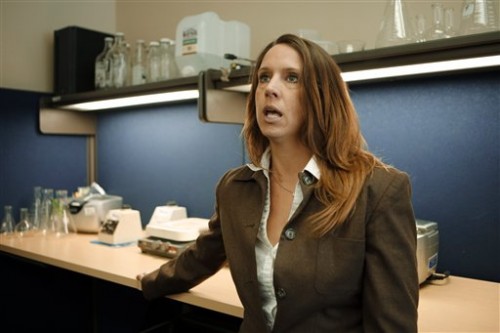Updated Nov. 25, 2015 at 1:38 p.m.
Colorado marijuana testing facility CannLabs closed its Denver laboratory on Tuesday and laid off as many as 15 people.
The shutdown of one of the largest cannabis labs in Colorado, and one considered an industry leader, comes after months of controversy involving the company’s leadership.
“It’s positive for us,” CannLabs Inc. CEO Mark Mirken told The Denver Post on Tuesday. “There were a significant amount of issues surrounding our involvement with CannLabs Colorado, items that were made public by certain people within that company that were factually incorrect and clearly became an impediment to our ability to work with them under the administrative services agreement.”
CannLabs Inc. on Tuesday filed U.S. Securities and Exchange Commission documents reporting it had terminated its administrative services agreement and technology license agreement with CannLabs Colorado, which was founded in 2010 by Genifer Murray and still owns the state marijuana testing facility license.

CannLabs Inc. owns the lab’s intellectual property, laboratory licenses in Connecticut and Nevada, a consulting business and the consumer-oriented StrainData database, Mirken said.
Mirken said CannLabs Inc. is trying to acquire or partner with another licensed Colorado lab.
“The most advantageous opportunity for us would be to acquire another company’s license in some sort of an agreeable configuration where the benefits of each company were synergistic,” Mirken said.
CannLabs is one of 17 state-certified laboratories testing marijuana and pot products for potency and consistency, and for pesticides, chemical residues and biological contamination. Its clients are typically cannabis growers and retailers.
CannLabs Inc. spokesman Bill Livermore said the company “was no longer operating profitably,” in part because it was taking care of Marijuana Enforcement Division violations and waiting for its final microbial certification from the state, a lengthy process that resulted in the company losing some of its market share.
“We had all the legacy issues with Genifer, with the MED, with microbials and we didn’t feel like it was a viable license to continue to operate,” Livermore said, adding that the public company hopes to transition quickly — and ideally bring back some of the staff.
“The company hopes that through the acquisition of a new license and lab that key staff members will be able to rejoin us,” Livermore said.
CannLabs in June 2014 completed a reverse merger with motorsports business SpeedSport Branding to become a publicly traded company. At the time of the merger, shares in the company traded at about $1.38, hitting a high of $2.22 a few weeks later. On Wednesday, shares were trading over the counter at 43 cents.
According to SEC filings, CannLabs Inc. founder and president Murray was terminated in early September for disclosing confidential information to third parties, advancing her personal interests over those of the company and making “defamatory statements about current and former executive officers, directors and shareholders of the Company, exposing the Company to potential litigation by such parties.”
In her resignation letter, written two weeks later, Murray advised Mirken and the company’s board of directors, “The way you have conducted yourselves in terms of noncompliance and outrageous expenditures as Directors of the company has seriously damaged the company and its shareholders.
“In hindsight, I realized that this merger … was a result of very bad advice and was detrimental to the work I have been devoted to for the past five and a half years,” Murray wrote.
She also said she is owed more than $100,000 in backpay, bonuses and expenses.
Murray did not respond to messages left Tuesday and Wednesday.
Mirken declined to respond to Murray’s claims, but he said that public companies in the legal cannabis space face unusual challenges.
“Sometimes in new industries, where you try to combine the business practices of a traditional non-regulated environment with probably one of the most heavily regulated environments, which would be, as far as labs are concerned, the CDPHE (Colorado Department of Public Health and Environment) and MED, and you layer on top of that the requirements of a publicly held entity, sometimes it’s difficult for people to both understand the rigorous rules that are required and the compliance issues that must be faced in being a public company,” Mirken said. “It’s possible that in this situation that became a difficult hurdle.”
Ricardo Baca: 303-954-1394, rbaca@denverpost.com or @bruvs
